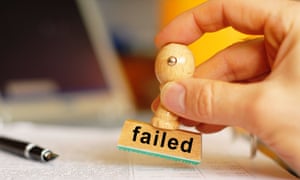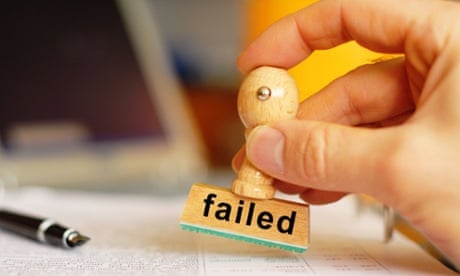
Students may not be getting the exam grades they deserve due to the inconsistent marking. Photograph: Alamy
Anonymous in The Guardian
Thursday 13 August 2015 07.00 BST
Anonymous in The Guardian
Thursday 13 August 2015 07.00 BST
Congratulations. Your students have got their grades, university beckons and you can bask in the warm glow of a job well done. Parents, colleagues and students salute you. But are the results accurate? As a senior examiner with more than 20 years’ experience, let me share my doubts.
Perhaps you picture genteel examiners sitting in Oxbridge common rooms, languidly resting on armchairs as they earnestly discuss whether Chloe’s essay merits an A* or merely an A. Maybe you imagine seasoned professionals kindly donating their holidays to mark in the garden over Earl Grey tea and lemon drizzle cake? Wise up. Examining is a ruthless multi-million pound business. There are two types of examiners: the quick and the dead. The faster we mark, the more we get paid. If we’re slow, we fall foul of exam cheat No 1: the exam board.

Take it from an examiner, your students’ A-level results could easily be wrong
It doesn’t matter whether you teach economics with ABC board or further maths with XYZ, they are as rotten as each other. My board ask for two qualifications from their examiners: they are alive and they need the cash.
Mr Simpson turns up year after year marking different papers in my subject because the exam board doesn’t cross reference sackings with recruitment. Think of him as a zombie – we declare them dead, but they reappear. Simpson is “aberrant”, in examiner parlance. This means that when we look at his marking, some scores are too generous, some are too mean and there is no pattern. Fancy having him mark your students’ papers? Ms Griffin, however, is merely a “lingering doubt”. These markers make big mistakes, but there is a consistent generosity or meanness that we can correct.
Speaking of consistency, here’s exam cheat No 2: Ofqual. The quango is charged with ensuring compatibility between the exam boards but its heavy-handed, ruthlessly statistical approach makes everything much worse. Unless exam boards give 80% of their marks to Ofqual by early July, they face severe sanctions, including public naming and shaming. Senior examiners therefore have to apply the thumbscrews to their juniors, with predictable consequences for accuracy.
In a recent report exam boards confessed to “guesstimating” grades. The only shock for me was that they admitted it. I’ve seen a chief examiner (top of the tree in exam terms) take a set of papers from an aberrant marker and come back minutes later with new grades. Usain Bolt couldn’t have moved at that speed. The examiner had clearly just looked up the school’s predicted grades and scribbled them on top of the papers. The moral of the story is to check the grades your centre sends to the board. They are used more than you think.
If in doubt about a result, always go for a re-mark – the numbers of requests are booming. It’s hardly a surprise; some examiners are not even standardised. In standardisation, they are given a sample of pre-marked papers and tested on how well they can match the agreed marks. If they cannot, they are not allowed to continue marking. But there are thousands of orphan scripts left unmarked every summer and my board was so desperate that it summoned the zombies, the lingering doubters and other barrel scrapings to a special centre to mark against the clock. Several of these worthy souls had failed standardisation but were allowed to carry on (paid at several times the normal rate).
It gets worse; there are gangsters out there. I’ve seen papers given the green light despite major reservations about how it’s been graded because an examiner needed to move on to their next marking gig. Exam cheat No 3: examiners.

Secret Teacher: marking exam papers exposes the flaws in teaching
I get paid £4 per script. There’s an adage about peanuts and primates. We genuinely don’t do it for the money, but no one likes to be exploited. Meanwhile, remarks cost £40, so someone is making a lot of money. Markers are poorly motivated and often poorly qualified. My examiners once needed several years of teaching experience, now I’ll take a PGCE student. What unites us is a genuine love of the subject we are marking and respect for the students who are producing the answers. For me, reading a good script is an emotional and resonant experience. Students deserve nothing less than my best, and I try to give it. I cannot say the same for the examining process. Your students’ marks may be right, wrong or anywhere in between.
Unexpected exam hero No 1: former education secretary Michael Gove. He was unpopular, but he had some good ideas, one of which was to reduce the exam boards to one. A single board with consistent standards, fair rules and fair results. One exam envelope. And no more zombies. Full marks, I say.
No comments:
Post a Comment